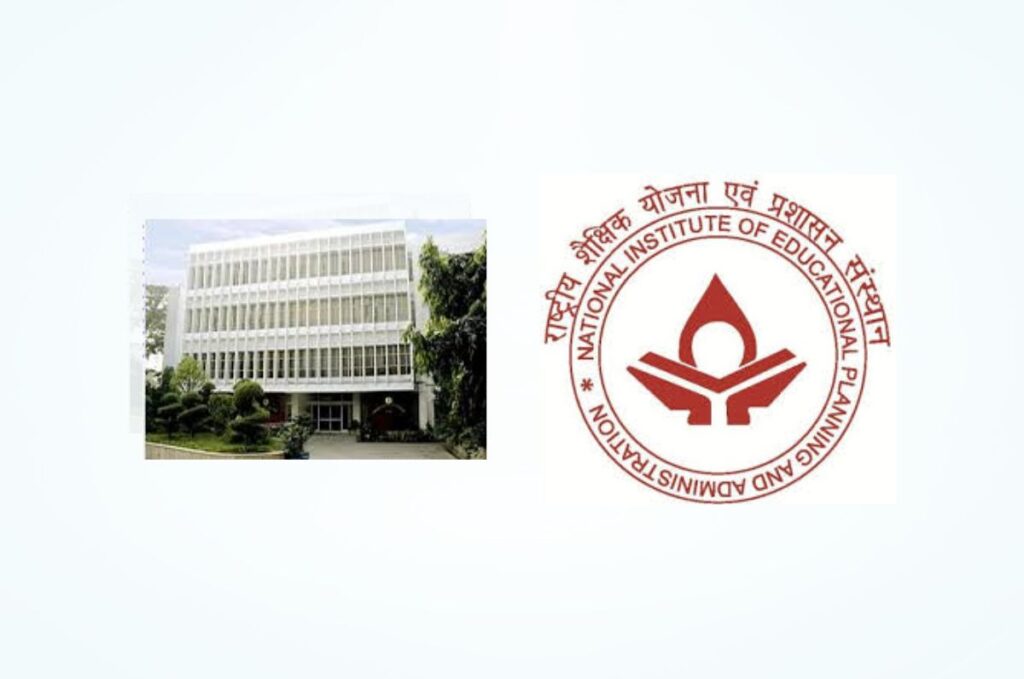The National Institute of Educational Planning and Administration (NIEPA) is a premier institution in New Delhi, India, established in 1962. It focuses on enhancing educational planning and administration through research, training, and policy advocacy. Originally founded as a UNESCO center, it has evolved into a Deemed to be University, offering programs that empower educational leaders and improve systems across India and South Asia.
Journey of NIEPA
NIEPA Timeline of Events
NIEPA was founded as the UNESCO Asian Centre for Educational Planners, Administrators, and Supervisors in New Delhi.
The institute evolved into the Asian Institute of Educational Planning and Administration, broadening its scope in South Asia.
It became the National Staff College for Educational Planners and Administrators, focusing on training and capacity building.
The institute adopted its current name, National Institute of Educational Planning and Administration (NIEPA), solidifying its mission.
NIEPA was granted Deemed to be University status by the Government of India, enhancing its academic stature and outreach.
Objectives and Functions
NIEPA primarily focuses on capacity building and research in educational planning and management not only within India but also across South Asia. Its mission encompasses several key areas:
- Educational Planning: Integrating inputs and processes at all levels to enhance educational quality.
- Educational Finance: Conducting research on economic aspects of education, focusing on public and private financing.
- School and Non-Formal Education: Addressing critical issues in school education and adult literacy through research and developmental programs.
- Management Information Systems: Strengthening educational data management through initiatives like the District Information System for Education (DISE).
- Educational Administration: Focusing on training and resource management within educational institutions.
- Policy Research: Stimulating discussions around educational policy through training and dissemination activities.
Chapter 1: The Seed of Change
In the early 1960s, as India emerged from the shadows of colonial rule, a vision took root. The nation recognized that education was the cornerstone of progress. Thus, in 1962, the National Institute of Educational Planning and Administration (NIEPA) was born in the bustling heart of New Delhi. Initially established as the UNESCO Asian Centre for Educational Planners, Administrators, and Supervisors, it was a humble beginning with grand aspirations.
Chapter 2: Growth and Evolution
As the years unfolded, NIEPA blossomed into a beacon of hope for educational reform. By 1965, it transitioned into the Asian Institute of Educational Planning and Administration, expanding its reach across South Asia. The institute became a sanctuary for educators and planners seeking knowledge and strategies to improve educational systems.
In 1973, it evolved again into the National Staff College for Educational Planners and Administrators, emphasizing training and capacity building. Each transformation reflected the changing needs of society and the growing importance of education in nation-building.
Chapter 3: A New Identity
In 1979, NIEPA embraced its current identity, solidifying its commitment to educational excellence. With a renewed mission, it aimed to empower educational leaders through research, training, and policy advocacy. The institute became a Deemed to be University in 2006, marking a significant milestone in its journey.
Chapter 4: The Heartbeat of Education
At its core, NIEPA is driven by several key objectives:
- Educational Planning: Crafting blueprints for effective learning environments.
- Educational Finance: Exploring innovative funding solutions to ensure equitable access.
- School and Non-Formal Education: Addressing gaps in literacy and lifelong learning.
- Management Information Systems: Harnessing data to inform decision-making.
- Educational Administration: Strengthening leadership within institutions.
- Policy Research: Shaping discussions around educational policies that impact millions.
Each department within NIEPA operates like an intricate cog in a well-oiled machine, working collaboratively to enhance educational outcomes across India.
Chapter 5: A Legacy of Impact
Through workshops, research projects, and training programs, NIEPA has touched countless lives. Educators trained at the institute have gone on to lead transformative initiatives in schools and communities. Policymakers have relied on NIEPA’s research to craft legislation that supports inclusive education.
As NIEPA continues its journey, it stands as a testament to the power of education as a catalyst for change. It embodies the spirit of innovation and resilience that characterizes India’s quest for a brighter future.
Epilogue: The Road Ahead
The story of NIEPA is far from over. With each passing year, it adapts to new challenges—be it technological advancements or shifts in societal needs. As it looks toward the future, NIEPA remains committed to its mission: to inspire and equip the next generation of educational leaders who will shape the world.
Programs offered
- Certificate Programs: NIEPA provides free online programs, such as the Certificate in School Leadership and Management, aimed at enhancing leadership skills in educational settings
- Training Programs: The institute conducts a range of capacity-building training programs throughout the year, including specialized workshops on topics like digital technologies in education
- Higher Education Degrees: NIEPA also offers advanced degrees such as M.Phil. and Ph.D. programs, focusing on various aspects of educational planning and administration
- Diploma Courses: In addition to degree programs, NIEPA provides diploma courses that cater to different educational needs
These offerings reflect NIEPA’s commitment to improving educational practices through comprehensive training and academic programs.

